Nicotine, a powerful and addictive chemical found in tobacco products, has long been known to impact various systems within the human body. One area of particular interest is its effect on the vestibular nerve. Understanding the relationship between nicotine and the vestibular nerve is crucial in comprehending the potential consequences of nicotine use and the importance of prevention and treatment.
Understanding the Vestibular Nerve
The vestibular nerve plays a vital role in maintaining balance and spatial orientation. Situated within the inner ear, this nerve is responsible for transmitting information related to head movement and positioning to the brain. It enables us to maintain equilibrium, perceive motion, and adjust our posture accordingly.
The vestibular nerve is a complex network of sensory fibers that work together to provide us with a seamless sense of balance. These fibers are intricately connected to the structures of the inner ear, including the semicircular canals and the otolith organs. These structures are responsible for detecting changes in head position and movement, and the vestibular nerve acts as the messenger, relaying this information to the brain.
When we move our heads, the fluid within the semicircular canals shifts, stimulating hair cells that line the canals. These hair cells convert the mechanical energy of the fluid movement into electrical signals, which are then transmitted through the vestibular nerve to the brain. The brain processes these signals and uses them to make adjustments to our posture and movement, ensuring that we stay balanced.
The Role and Function of the Vestibular Nerve
The vestibular nerve contributes to our ability to perform everyday tasks such as walking, running, and even simple actions like turning our heads. It detects rotational movements, linear accelerations, and gravitational changes, sending signals to the brain to ensure our stability and coordination. Therefore, any disruption to the vestibular nerve can lead to significant consequences.
When the vestibular nerve is functioning properly, it provides us with a sense of spatial awareness and allows us to navigate our surroundings with ease. For example, when we walk on an uneven surface, the vestibular nerve helps us maintain our balance by detecting the changes in terrain and adjusting our body position accordingly. Without the vestibular nerve, simple tasks like walking would become incredibly challenging.
In addition to maintaining balance, the vestibular nerve also plays a crucial role in our ability to perceive motion. It allows us to sense when we are moving and in what direction, providing us with a constant feedback loop that helps us navigate the world around us. This is particularly important when we are in vehicles, as the vestibular nerve helps us detect the motion of the vehicle and adjust our body position accordingly.
Anatomy of the Vestibular Nerve
The vestibular nerve consists of two branches, the superior and the inferior branches, each responsible for transmitting specific sensory information to the brain. These branches work in tandem to provide a comprehensive understanding of our spatial orientation.
The superior branch of the vestibular nerve primarily transmits information related to rotational movements. It is responsible for detecting changes in head position, such as when we turn our heads to look at something or when we nod in agreement. This branch is crucial for maintaining our sense of balance and coordination, as it provides the brain with real-time information about our head movements.
The inferior branch of the vestibular nerve, on the other hand, is responsible for detecting linear accelerations and gravitational changes. It helps us perceive changes in our body position, such as when we stand up from a sitting position or when we lie down. This branch of the vestibular nerve works in conjunction with the superior branch to provide a complete picture of our spatial orientation.
In conclusion, the vestibular nerve is an essential component of our sensory system that allows us to maintain balance, perceive motion, and adjust our posture accordingly. Without this nerve, our ability to navigate the world around us would be severely compromised. Understanding the intricacies of the vestibular nerve helps us appreciate the complexity of our own bodies and the remarkable ways in which they enable us to interact with our environment.
The Impact of Nicotine on the Human Body
Nicotine, a naturally occurring organic compound found in tobacco, is inhaled or absorbed into the bloodstream through various forms of tobacco consumption. It rapidly reaches the brain, where it exerts its effects on the central nervous system.
When nicotine enters the body, it undergoes a series of complex interactions that have far-reaching effects on various systems. Let’s delve deeper into the fascinating world of nicotine and its impact on the human body.
Nicotine: A Brief Overview
Once inhaled or consumed, nicotine binds to specific receptors in the brain, mimicking the actions of acetylcholine, a neurotransmitter. This interaction leads to the release of various chemicals, including dopamine, which creates a sense of pleasure and reward.
However, the effects of nicotine extend beyond the brain. As it travels through the bloodstream, it interacts with different organs and tissues, leaving its mark on the entire body.
How Nicotine Affects the Nervous System
Nicotine’s impact on the nervous system extends beyond the brain, affecting various nerves throughout the body. While the precise mechanisms are still being studied, research suggests that nicotine alters the communication between nerves, potentially disrupting the normal functioning of specific nerve pathways.
One area of interest is the autonomic nervous system, which controls involuntary bodily functions such as heart rate, digestion, and breathing. Nicotine can stimulate this system, leading to increased heart rate and blood pressure. These effects can be particularly concerning for individuals with pre-existing cardiovascular conditions.
Furthermore, nicotine’s influence on the nervous system can also affect cognitive functions such as attention, memory, and learning. Studies have shown that chronic nicotine exposure may impair these cognitive processes, highlighting the importance of understanding the long-term consequences of nicotine use.
The Respiratory System: A Target of Nicotine
While the respiratory system is primarily associated with the harmful effects of smoking, it is essential to explore how nicotine specifically impacts this vital system. When nicotine is inhaled, it enters the lungs, where it is rapidly absorbed into the bloodstream.
Once inside the lungs, nicotine can cause constriction of the airways, leading to shortness of breath and decreased lung function. This constriction can be particularly problematic for individuals with asthma or chronic obstructive pulmonary disease (COPD).
Moreover, prolonged exposure to nicotine can also damage the delicate tissues of the lungs, increasing the risk of respiratory infections and other respiratory conditions. It is crucial to recognize the detrimental effects of nicotine on the respiratory system and the importance of maintaining healthy lungs.
In conclusion, nicotine’s impact on the human body extends far beyond its effects on the central nervous system. From altering nerve communication to affecting cognitive functions and targeting the respiratory system, nicotine leaves a profound imprint on various systems and organs. Understanding these effects is crucial for individuals seeking to make informed decisions about tobacco consumption and for researchers striving to develop effective strategies for nicotine addiction treatment.
The Direct Effects of Nicotine on the Vestibular Nerve
Studies have shown that nicotine can directly impact the function of the vestibular nerve, potentially leading to damage and related symptoms.
Nicotine and Vestibular Nerve Damage
Chronic exposure to nicotine can result in detrimental effects on the vestibular nerve. It is believed that nicotine’s vasoconstrictive properties restrict blood flow to the inner ear, depriving the vestibular nerve of essential oxygen and nutrients. This can lead to damage or impairment of the nerve’s ability to transmit sensory information accurately.
When nicotine enters the bloodstream, it travels to the inner ear, where the vestibular nerve is located. The nicotine molecules bind to specific receptors on the nerve cells, triggering a cascade of chemical reactions. Over time, this continuous exposure to nicotine can disrupt the delicate balance of the vestibular system, causing long-term damage.
Research has shown that the effects of nicotine on the vestibular nerve are dose-dependent. Higher levels of nicotine consumption, such as those seen in heavy smokers, can increase the risk of nerve damage. Additionally, the duration of nicotine exposure also plays a role, with long-term smokers being more susceptible to vestibular dysfunction.
Symptoms of Vestibular Nerve Damage Due to Nicotine
Individuals experiencing vestibular nerve damage caused by nicotine may encounter a range of symptoms. These can include dizziness, imbalance, vertigo, nausea, and difficulty coordinating movements. Such symptoms can significantly impact an individual’s daily life, making simple tasks challenging and leading to a decreased quality of life.
Dizziness is one of the most common symptoms experienced by individuals with vestibular nerve damage. It can manifest as a feeling of lightheadedness or unsteadiness, making it difficult to maintain balance. Imbalance, on the other hand, refers to a sense of unsteadiness or a tendency to sway or stumble while walking. Vertigo, a spinning sensation, is another common symptom that can be triggered by nicotine-induced vestibular nerve damage.
Alongside these physical symptoms, individuals may also experience cognitive difficulties. Nicotine’s impact on the vestibular nerve can affect the brain’s ability to process sensory information accurately. This can result in difficulties with spatial awareness, coordination, and concentration.
Furthermore, the symptoms of vestibular nerve damage caused by nicotine can vary in severity from person to person. Some individuals may only experience mild discomfort, while others may have debilitating symptoms that significantly impact their daily activities and overall well-being.
It is important to note that quitting nicotine consumption can help alleviate some of these symptoms. The vestibular nerve has the capacity to repair and regenerate, given the chance. By abstaining from nicotine, individuals can give their bodies the opportunity to heal and potentially reverse some of the damage caused by chronic exposure.
The Long-Term Consequences of Nicotine on the Vestibular Nerve
Continued nicotine use can have lasting consequences on the functioning of the vestibular nerve.
The vestibular nerve is a crucial component of the inner ear responsible for transmitting sensory information related to balance and spatial orientation to the brain. It plays a vital role in maintaining our equilibrium and coordinating our movements. However, when exposed to nicotine over an extended period, the vestibular nerve can suffer significant damage, leading to various long-term consequences.
Chronic Effects of Nicotine on Vestibular Function
Research suggests that chronic nicotine use can lead to sustained impairment of vestibular function. The nicotine present in tobacco products can disrupt the delicate balance of chemicals and neurotransmitters within the inner ear, interfering with the normal functioning of the vestibular nerve.
This disruption can result in persistent dizziness, unsteadiness, and difficulty performing activities that require a steady balance. Simple tasks such as walking, climbing stairs, or even standing upright can become challenging and potentially dangerous for individuals affected by nicotine-induced vestibular dysfunction.
Moreover, the risk of falls and related injuries may increase significantly. The compromised vestibular function can make it difficult for individuals to maintain their stability, leading to a higher likelihood of accidents and fractures. This not only affects physical health but also impacts a person’s overall well-being and quality of life.
Potential for Recovery After Quitting Smoking
While the long-term consequences of nicotine on the vestibular nerve are concerning, there is hope for recovery. Studies have shown that quitting smoking or abstaining from nicotine consumption can lead to improvements in vestibular function.
When a person stops exposing their vestibular nerve to the harmful effects of nicotine, the body gradually starts to repair the damage. The inner ear undergoes a healing process, and the disrupted balance of chemicals and neurotransmitters begins to normalize.
However, it is important to note that the recovery process may vary between individuals. Factors such as the duration and intensity of nicotine use, as well as individual physiological differences, can influence the speed and extent of recovery. Therefore, it is advisable to seek medical guidance for personalized advice and support when quitting smoking or attempting to overcome nicotine addiction.
In conclusion, the long-term consequences of nicotine on the vestibular nerve can be significant and detrimental to an individual’s well-being. Chronic nicotine use can lead to sustained impairment of vestibular function, resulting in persistent dizziness, unsteadiness, and an increased risk of falls. However, there is hope for recovery through quitting smoking or abstaining from nicotine consumption. It is essential to prioritize one’s health and seek professional help when embarking on the journey towards a nicotine-free life.
Prevention and Treatment
Given the potential harm nicotine can inflict on the vestibular nerve, it is essential to prioritize prevention and explore treatment options if nicotine-induced vestibular nerve damage is suspected.
Strategies for Preventing Nicotine-Induced Vestibular Nerve Damage
Prevention involves abstaining from tobacco products, including smoking, vaping, and chewing tobacco. It is crucial for individuals to be aware of the risks associated with nicotine and make informed decisions to protect their vestibular health.
Nicotine, a highly addictive chemical found in tobacco products, not only affects the respiratory and cardiovascular systems but also poses a significant threat to the vestibular nerve. This nerve plays a crucial role in maintaining balance and spatial orientation, allowing us to navigate the world with ease and confidence.
By avoiding nicotine, individuals can reduce their risk of developing vestibular nerve damage. This includes staying away from secondhand smoke, which can also contain harmful chemicals that may affect the vestibular system.
Consulting with healthcare professionals or seeking support from smoking cessation programs can greatly aid in the journey to nicotine-free living. These resources can provide guidance, support, and evidence-based strategies to help individuals quit smoking and prevent further damage to the vestibular nerve.
Treatment Options for Nicotine-Induced Vestibular Nerve Damage
If vestibular nerve damage has occurred due to nicotine use, a thorough evaluation by a healthcare professional is crucial. They can recommend appropriate treatments and therapies, which may include vestibular rehabilitation exercises, medication to alleviate symptoms, or referral to specialized vestibular clinics.
Vestibular rehabilitation exercises are designed to improve balance, reduce dizziness, and enhance overall vestibular function. These exercises may include head movements, eye exercises, and balance training. Working with a physical therapist or vestibular rehabilitation specialist can help individuals regain their balance and minimize the impact of nicotine-induced vestibular nerve damage on their daily lives.
In some cases, medication may be prescribed to alleviate symptoms such as dizziness, vertigo, and nausea. These medications can help manage the effects of vestibular nerve damage and improve quality of life.
Referral to specialized vestibular clinics may be necessary for individuals with severe or complex cases of nicotine-induced vestibular nerve damage. These clinics have advanced diagnostic tools and a multidisciplinary team of healthcare professionals who specialize in treating vestibular disorders. They can provide comprehensive care and develop personalized treatment plans tailored to each individual’s needs.
It is important to follow medical advice and work closely with healthcare professionals to optimize recovery. Regular check-ups and ongoing communication with the healthcare team can ensure that the treatment plan is effective and adjusted as needed.
In conclusion, nicotine, a highly addictive chemical present in tobacco products, can have detrimental effects on the vestibular nerve. With its critical role in maintaining balance and spatial orientation, any damage to this nerve can significantly impact an individual’s daily life.
Awareness, prevention, and prompt treatment are key to mitigating the consequences of nicotine-induced vestibular nerve damage. By abstaining from nicotine and seeking appropriate medical care, individuals can protect their vestibular health and minimize the impact of nicotine on their overall well-being.
It is essential to consult with healthcare professionals for personalized guidance and support on maintaining vestibular health and making informed decisions regarding nicotine use. Together, we can work towards a healthier future, free from the harmful effects of nicotine on the vestibular system.




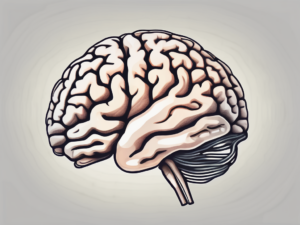
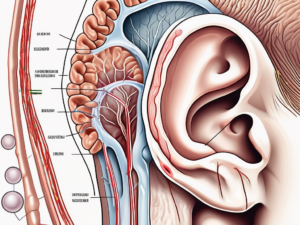
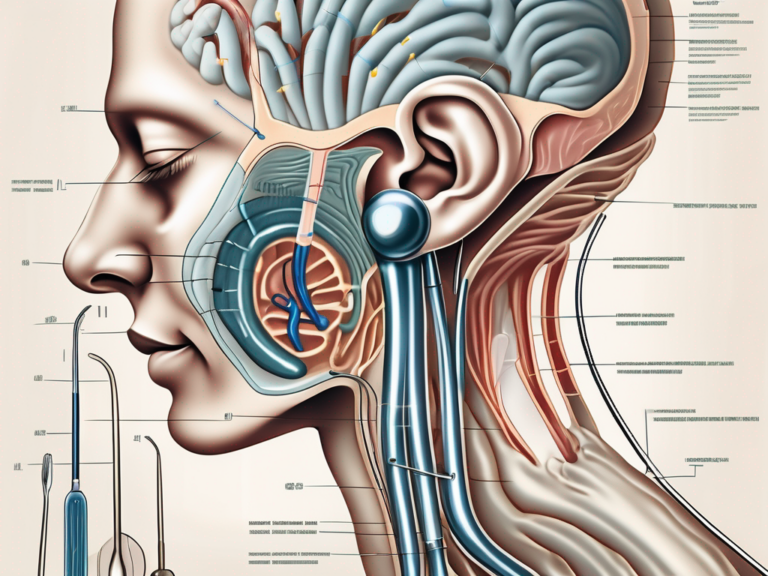
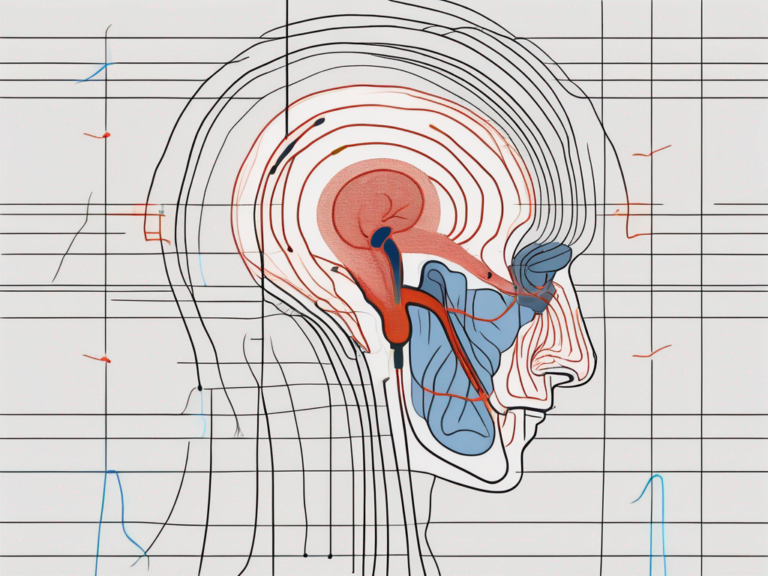
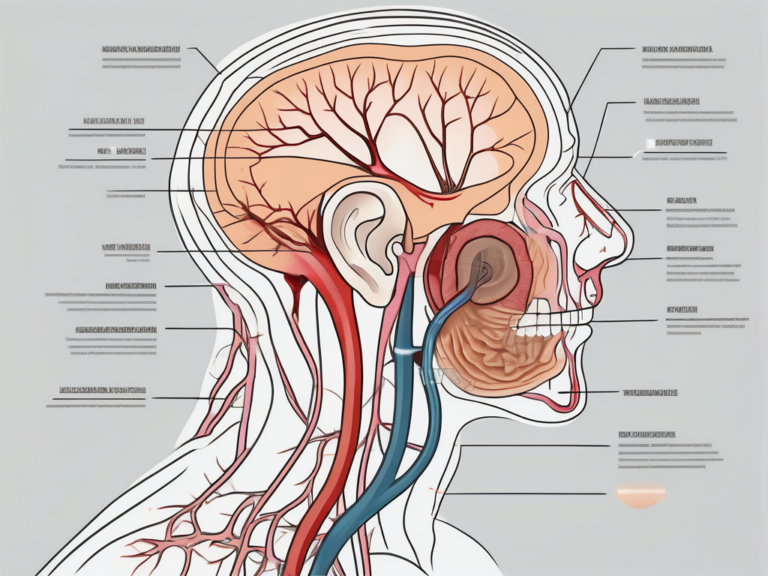
+ There are no comments
Add yours